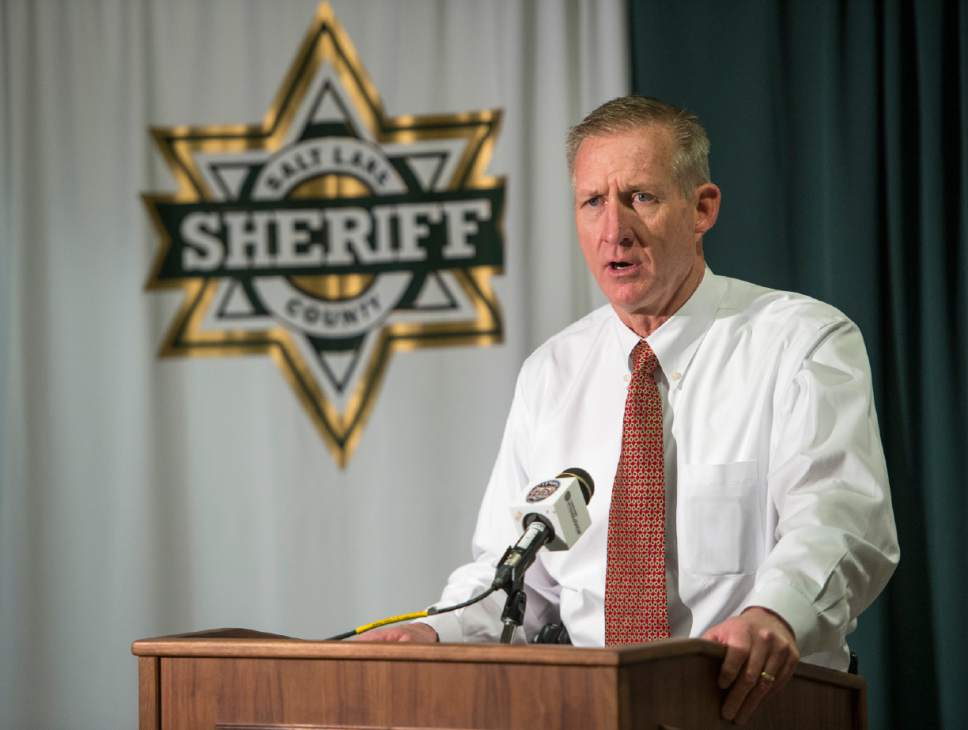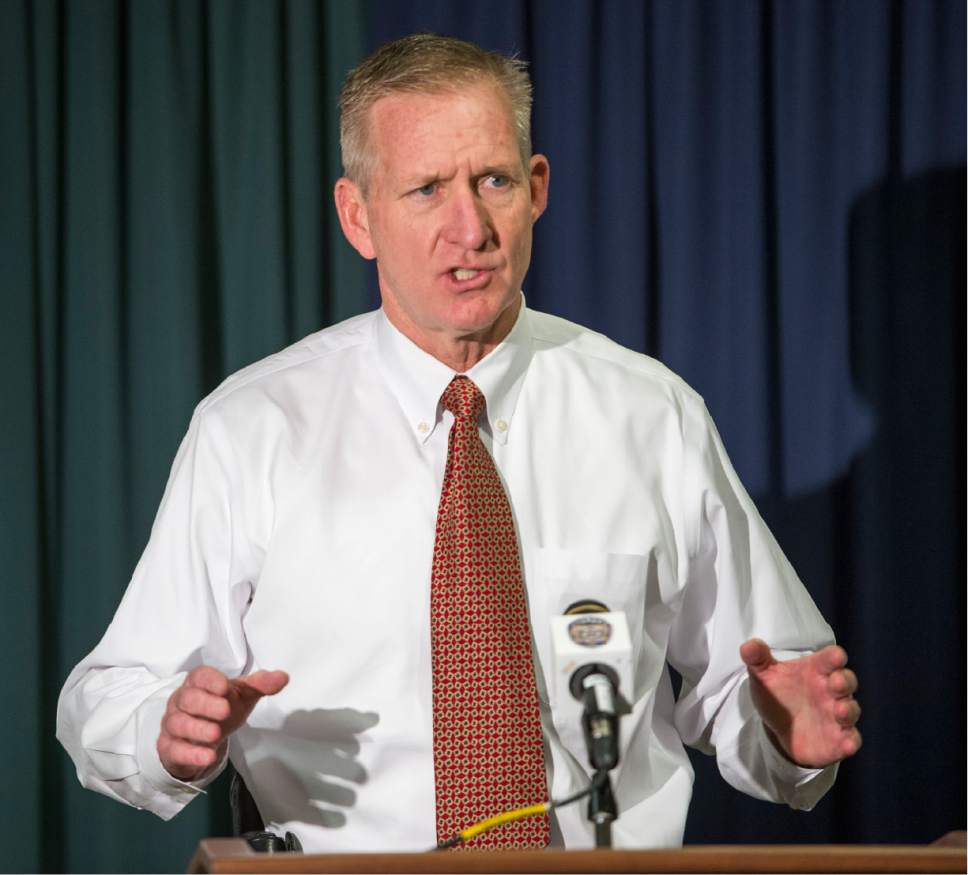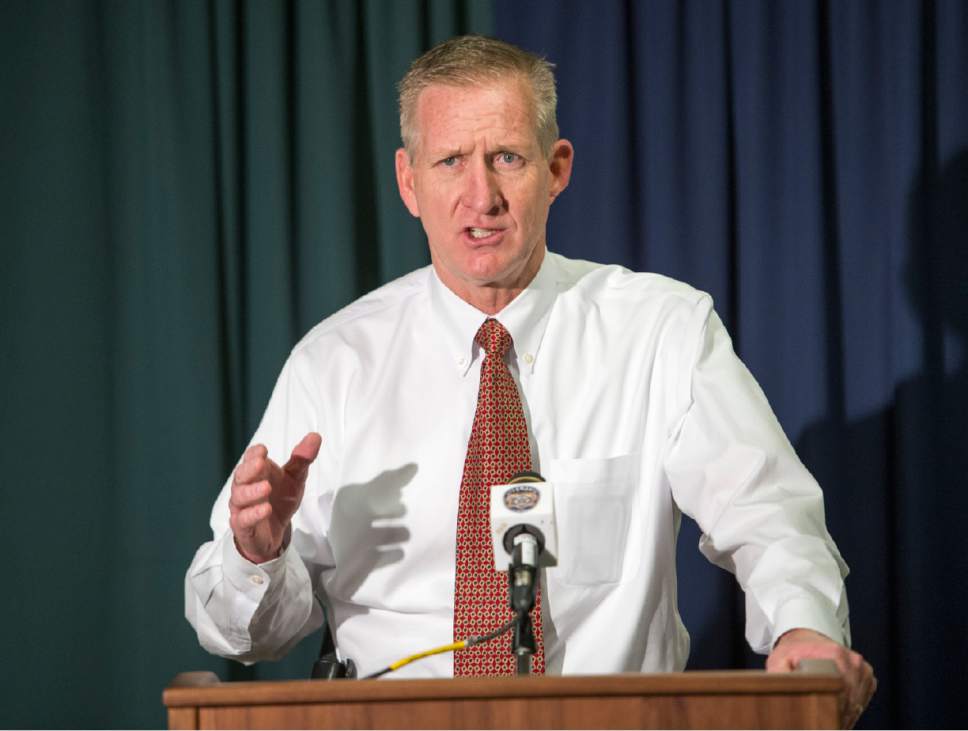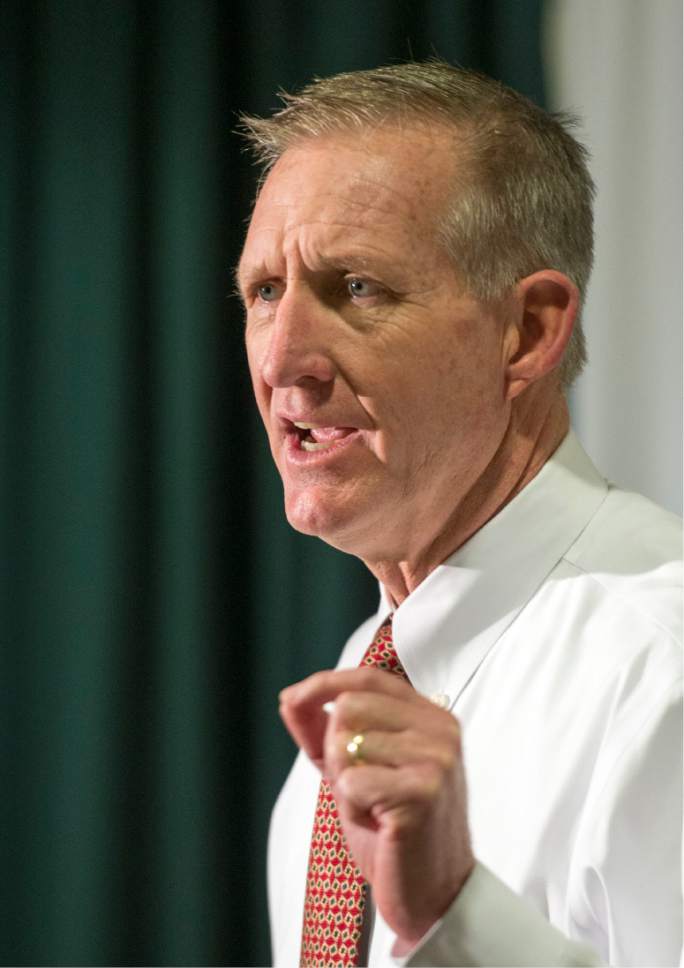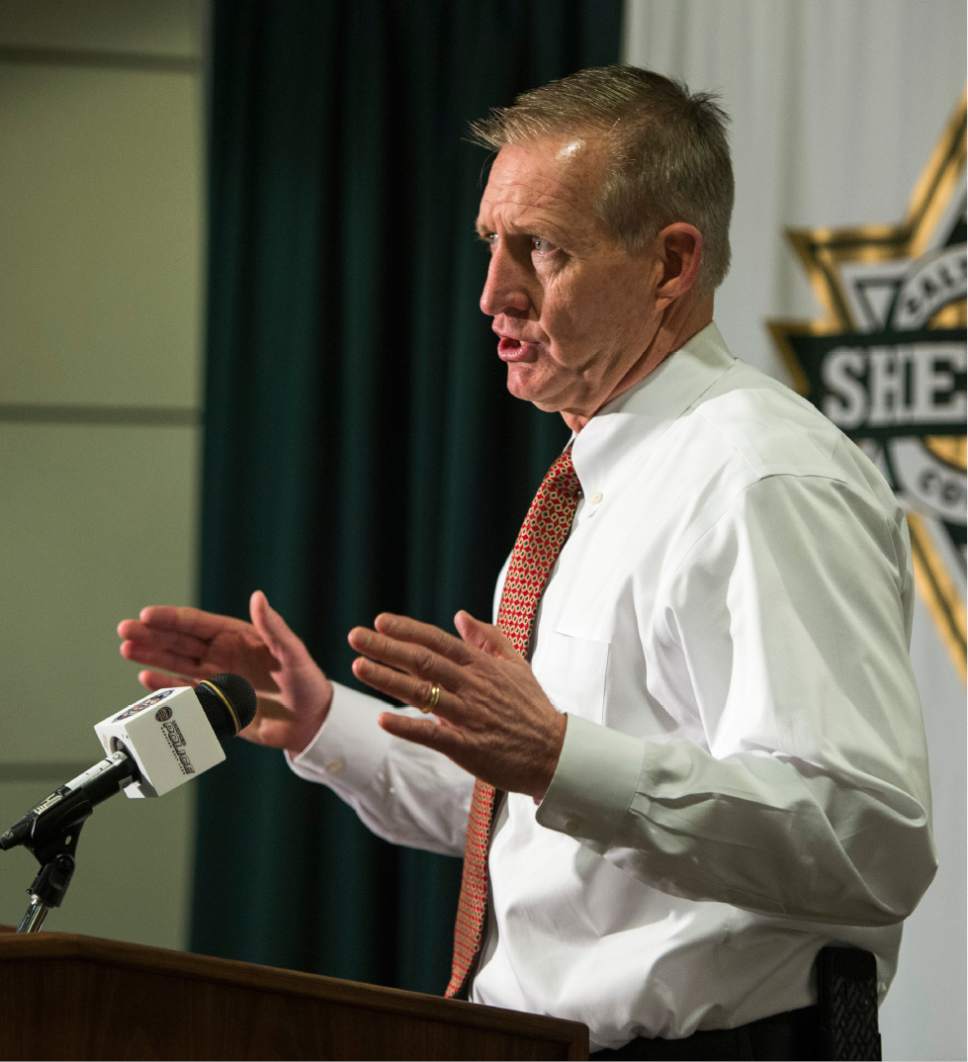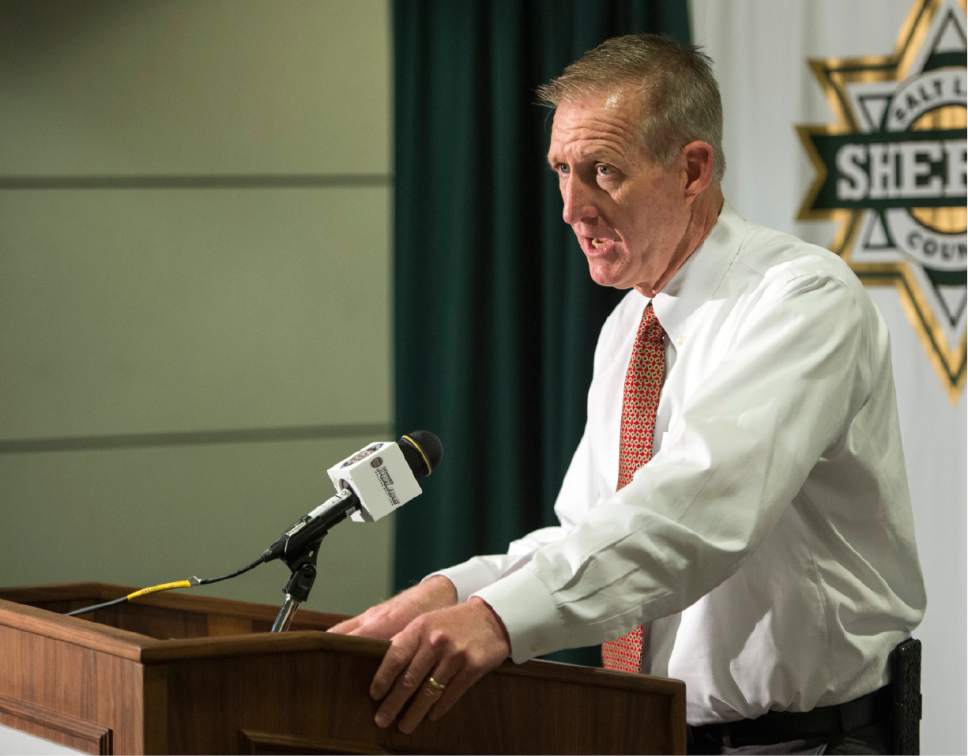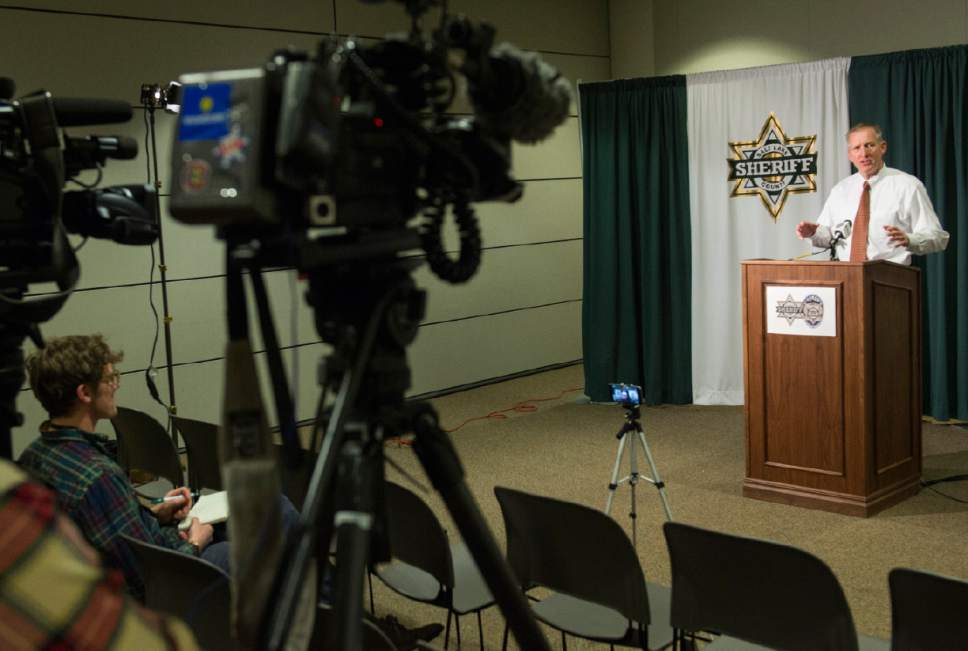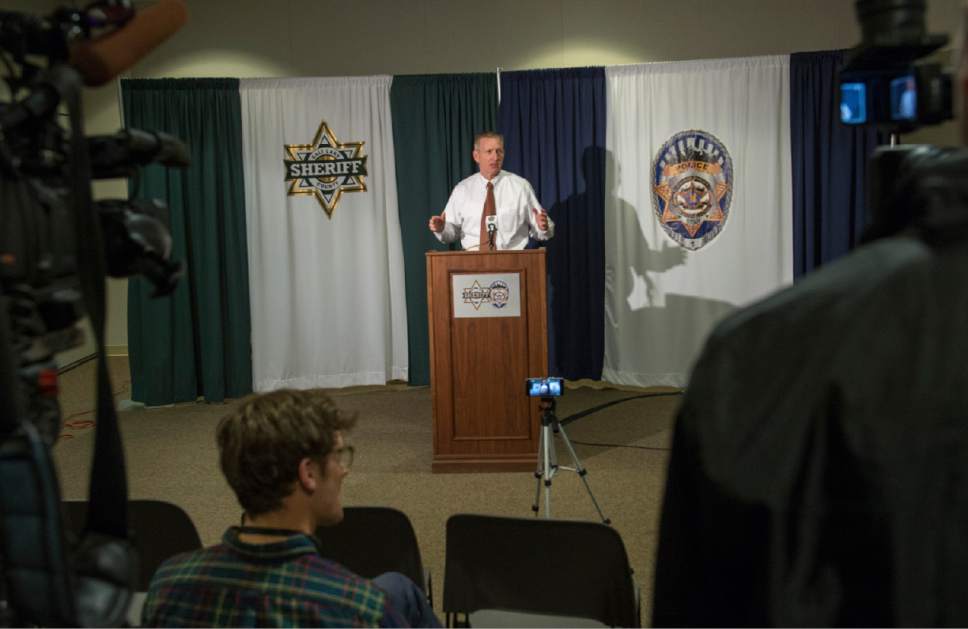This is an archived article that was published on sltrib.com in 2017, and information in the article may be outdated. It is provided only for personal research purposes and may not be reprinted.
Should the family of a police officer who died while doing office work receive benefits similar to those given to family members of an officer who was killed on the job?
That's the question Salt Lake County Sheriff Jim Winder posed as he lamented the loss of two Unified Police Department detectives and an officer, who died within 18 days of one other.
Winder at a Monday news conference called for lawmakers to consider changing state law after the three employees died — none in the line of duty, according to the state's definition.
"The language goes on," Winder said, "to specifically exempt from line-of-duty-death individuals that are engaged in administrative or clerical functions with no other synergy to an active law-enforcement activity."
Detective Brian Holdaway died this month after collapsing while conducting what Winder described as "investigative work" in the office.
"In that instance, the question has to be raised: Should the statutes be extended to that circumstance?" Winder said.
Winder said he's hoping the Legislature will answer that question just two years after it passed a bill upping the benefits for fallen officers and firefighters.
The 2015 law extended the amount of time family members could stay on a fallen officer's health insurance plan and hiked the amount of money families could receive.
According to one legislator, the law should be looked at again.
Rep. Paul Ray, R-Clearfield, sponsored HB288 in 2015, which expanded benefits to the families of fallen officers and firefighters. Ray said Monday that he was receptive to working on changes this summer.
"We'll look at trying to extend some type of benefits package," Ray said. "That's what the discussion is going to be in the summer, is what is the right thing to do."
Lawmakers must be careful, Ray said, to tailor any bill to ensure that benefits are extended in narrow cases.
Two other employees, Detective Brooks Green and Officer Jon Richey, also died in recent weeks.
Richey was known in Utah after he suffered a gunshot wound in both legs in a shooting that also killed Officer Doug Barney. He was found dead in his Salt Lake City home on Saturday, the same day colleagues mourned Holdaway at his funeral, Winder said.
The sheriff said he wasn't sure whether the shooting injuries contributed to Richey's death, saying it was under an investigation he described as routine.
The call for legislative action was only part of the reason Winder said he held the news conference. He wanted to address what he repeatedly said were "hurtful" statements on social media by some people speculating about the causes of death.
"There seems to be a perpetuation in the social-media sphere that these individuals have somehow taken their lives or there are some other nefarious circumstance," Winder said. "That is hurtful, that is concerning and it is unnecessary speculation on the part of individuals who, frankly, have little to no information about these very tragic and hurtful circumstances."
Richey's death, Winder said, is not believed to be a suicide.
"I hate to be that specific about it, but the reality is that we're getting all this speculation about that and it's painful to the Richey family," Winder said. "In terms of the ultimate determination of the cause, I'll leave that to Salt Lake City."
"But I can clearly say that it appears to be natural," he said.
Green's death, Winder said, is under investigation but was described as natural.
Twitter: @TaylorWAnderson


